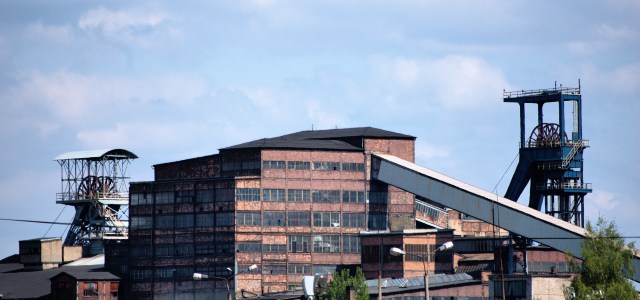The Polish government is one of the proponents of a European energy union. Unfortunately, its sole concerns are cheap access to gas and the survival of Polish coal – a goal that runs completely contrary to the EU’s climate policy, argues Michał Olszewski.

Outdated, dirty and without government intervention increasingly uncompetitive – Polish Coal. (Photo by Kris Duda, CC BY-SA 2.0)
Let’s state the matter bluntly: the recent unrest in Ukraine gave Poland the opportunity to push for a European energy union. Without the Ukrainian unrest, the efforts to build an energy union would have remained as unambitious as before. Shots on the Maidan and the subsequent events in eastern Ukraine changed the situation dramatically: Polish Prime Minister Donald Tusk, seen previously in Berlin or Copenhagen as a disruptive force in the move towards a coherent EU climate and energy policy, has become one of the most prominent figures in the debate on the energy union.
You might have noticed that I jumped from energy to ecology. Not without reason: at its heart, EU environmental policy is fundamentally a debate about energy. The gradual shift away from coal and increasing shares of renewable energy are the foundations on which the EU aims to combat global warming. It appears that when Poland joined the European Union in 2004, most Polish politicians did not realize how great and difficult the task would be to transform the traditional energy sector into a greener one. Put another way: they knew, but they did not want to damper public enthusiasm about joining the EU by talking about the difficulties related to a cap-and-trade system and the necessary changes to the Polish energy mix.
As a result, the changes that have occurred in the Polish energy sector over the past 10 years are rather unclear: Polish politicians of all parties actually agreed that the best response to the challenges posed by a more ambitious EU energy and climate policy would be to delay it through organized legal obstruction.
After the unrest in the Ukraine, leading politicians from EU countries began to listen to the Polish energy security demands more closely. We are now seeing that dependence on Russian gas could lead to a catastrophe for the energy security of many parts of the EU. EU countries import nearly two-thirds of its energy needs (50 per cent of coal, 80 per cent of its gas, 90 per cent of oil supplies). For Poland, these indicators also look alarming: we are talking about 14% , 75% and almost 100% respectively.
Polish Prime Minister Tusk wants to build solidarity mechanisms that support those countries whose energy supplies of fossil fuels are cut off by the crisis; he also calls for better financing of major gas investments in those countries most dependent on the whims of Gazprom and insists that the EU speak with one voice when negotiating gas deals.
Still, it is hard to imagine, for example, that Germany, the Netherlands and France would agree to create a single wholesale gas market in Europe, which is one of the key demands of Tusk. The Netherlands buys gas from Russia at the lowest price in Europe; Germany and France also have no reason to complain. It’s hard to believe that they would like to renegotiate this sensitive issue.
With regard to climate policy, the most important issue here that Tusk is calling for is the rehabilitation of domestic energy sources, which in practice means facilitating the growth of the coal sector and the emerging shale gas industry. This demand reflects a clear desire to deconstruct the EU’s climate policy, especially in the coal sector (it is too early to estimate prospects for future shale gas exploration). Generally, the Polish mining industry is increasingly unable to compete with cheaper imported coal. The threat of bankruptcy of leading Polish coal companies is the real reason why the Polish Prime Minister is now pursuing various methods of assistance.
However, signals from Brussels seem to indicate that the return of domestic coal is highly unlikely. European climate policy is torn by this crisis, but there is a dogma: the European Union must play an active role in the fight against global warming. Decarbonization is a substantial part of this battle.
What will Prime Minister Tusk do? Primarily concerned with domestic politics and the illegal wiretaps that have dominated Polish political debate in recent weeks, he has put the energy issues on the back burner .
Michał Olszewski (born 1977) – journalist, reporter, writer. For more than twelve years he worked for Gazeta Wyborcza and Tygodnik Powszechny, where he concentrated mostly on environmental issues. He is engaged in a Krakow-based campaign against air pollution.
Selling gas at different prices to different countries in the EU is just another way to try and break the EU by creating artificial conflicts of interest . But still, even though that places some countries in a better position than others I think it’s important to see that it’s not only price that matters but also risk. Maybe some countries pay a lower price for their gas right now, but who’s to say that in the future suppliers won’t threaten with adjusting that deal to manipulate the political scene in Europe? Paying a little more for your gas may reduce that risk considerably since it’s not the same denying service to one country than it is to 28. And that’s only one of many benefits that would result from an energy union.
I get it, maybe going back to coal is not the best long term solution, but there are many other projects that would be made possible by this.